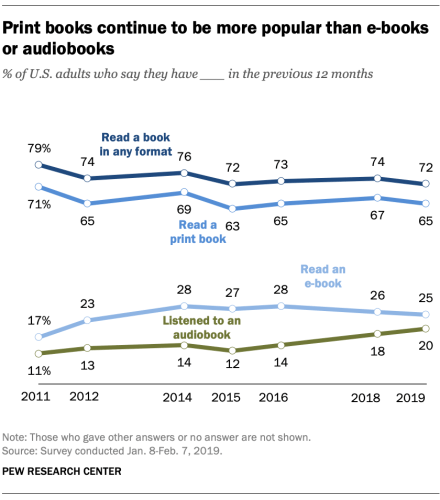That’s true. But with modern typesetting, I would assume that by the time the print book is ready to roll off the presses, the ebook is basically already done. I would be shocked if that isn’t automated at this point.
That basically makes the cost of the book the cost of producing the information in it (author fees, editing fees, cover design, etc.), and the aggregated layout cost of the ebook and print book.
So if pricing was just based on cost, I would expect the price of an ebook to be some formula based roughly on:
(print book price) - (cost of producing a print book) - (distribution costs of a print book) + (cost of digital distribution platform)
And on balance, I would expect that to tip slightly in the direction of ebooks being cheaper.
Now we’re moving from “cost” to “value”. And I’m not sure how many situations there are where the value of an ebook significantly eclipses the value of the print equivalent, although I can note at least one.
Digital book publishers a ways back were talking about making library-purchased ebooks “expire”. The idea being that a physical copy of a book gets worn out or destroyed by continued checkouts, so an ebook should basically work the same way. The problem was that the publishers set that limit ridiculously low, so effectively the library would have to keep purchasing and purchasing the ebooks if they were popular.
Reference from 2011:
For a book in heavy use, an ebook wouldn’t ever really wear out. I don’t think that would apply nearly as much to typical users though, especially since most people don’t ever read any given book until the pages are falling out (unless they really, really don’t know how to handle a book!)
And there’s always the built-in negative that ebook licenses typically aren’t transferrable. So if you buy:
for $90 in print, you can sell / give that to a friend / future student studying the same field and theoretically recoup some of your costs. If you pay $90 for the ebook, that’s it.
